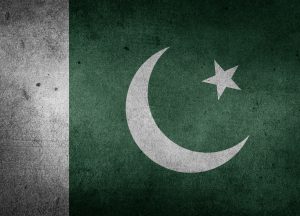In the complex tapestry of Pakistan’s political landscape, the country stands at a critical juncture with the approach of the general elections, scheduled for February 8. This period is not just a test of the democratic process but also a reflection of the complex interplay of power, influence, and aspirations that characterize Pakistani politics.
At the heart of this political saga is the pervasive influence of the establishment, often a euphemism for the military’s role in politics, which has historically orchestrated the ebb and flow of political fortunes. The pre-election environment is rife with maneuvers reminiscent of a chess game, where politicians are pressured to switch allegiances, underscoring the adage, “There are no permanent enemies, and no permanent friends, only permanent interests.” This phenomenon is not new in Pakistan’s political history but has been particularly pronounced in recent times, catching even seasoned political analysts off guard.
In this context, the Pakistan Senate’s repeated resolutions to delay the elections, citing security concerns, are seen by many as another move in the high-stakes game. This strategy, while ensuring control, also casts a shadow over the democratic process. Akin to the proverbial “wolf in sheep’s clothing,” actions taken ostensibly for the public good mask underlying power plays.
The situation is further complicated by the legal and political trials of key political figures. Imran Khan, the charismatic leader of the Pakistan Tehreek-e-Insaf (PTI), who once basked in the establishment’s favor, now finds himself in the eye of the storm, facing imprisonment and disqualification from contesting the elections. This dramatic turn of events is a stark contrast to his rise to power in 2018, a time when his main rival, Nawaz Sharif, was embroiled in legal troubles. Today, the roles are reversed, with Sharif cleared of charges and poised to re-enter the political arena.
This reversal of fortunes is emblematic of the fluidity and unpredictability of Pakistani politics, where today’s king can be tomorrow’s pawn. The aggressive stance against Khan and his party marks a departure from the past and indicates a near-total dismantling of the PTI’s political structure, a scenario that was unthinkable a few years ago.
As the elections draw near, the political landscape is overshadowed by a fierce competition for power, often at the expense of addressing the country’s critical issues like governance, economic stability, and security. Political parties, caught in the whirlwind of survival and dominance, seem to have relegated the discussion of substantial policy matters to the background. This shift in focus not only diverts attention from vital policy discussions but also threatens to dilute the democratic value of the elections. The resulting vacuum in meaningful political discourse is like navigating a ship without a compass, where direction and purpose are lost amid turbulent political waters.
The pre-election scenario, marked by substantial political maneuvering, casts a long shadow over the prospects of a free and fair general election. The delay of the election, initially set to occur by November under the terms of the constitution, and the postponement of provincial assembly elections further exacerbate these concerns. These assemblies, operating under caretaker governments, reflect a broader trend of political uncertainty and manipulation.
In this charged atmosphere, the electorate is left pondering the future of democracy in Pakistan. The political landscape, which should ideally be a platform for robust debate and policy formulation, has been reduced to a battleground of power politics. This situation poses a significant challenge to the democratic process, raising questions about the authenticity and legitimacy of the electoral outcome.
Notwithstanding the pre-electoral crisis crescendo, when the new government in Pakistan takes the helm, it will face an array of formidable challenges, not only within its borders but also on the international stage. The domestic front is marred by escalating security concerns, primarily the surge in terrorism in regions like Balochistan and Khyber Pakhtunkhwa. This uptick in violence, attributed to groups like the Tehreek-e-Taliban Pakistan (TTP), Islamic State Khorasan Province (ISKP), and various Baloch separatist groups, poses a significant threat to the nation’s stability. The government’s ability to formulate and implement effective counterterrorism strategies will be crucial in ensuring national security, particularly in the critical post-election period.
Simultaneously, the economic challenges are daunting. Pakistan grapples with severe currency devaluation, dwindling foreign reserves, and the heavy burden of repaying substantial debts to international bodies and countries like the International Monetary Fund, China, Saudi Arabia, and the UAE. Rising inflation and the crippling energy crisis further exacerbate the situation, demanding immediate and effective economic policy interventions. Balancing fiscal measures, social welfare, and the need to tackle rampant corruption and unemployment will test the government’s economic acumen.
On the foreign policy front, Pakistan navigates a complex geopolitical landscape. Its relations with immediate neighbors, Afghanistan and India, are fraught with tension, necessitating a nuanced diplomatic approach. An unexpected escalation along the border with Iran has exacerbated Pakistan’s security situation. Pakistan’s ties with the United States, amid the global backdrop of heightened rivalry between the U.S. and China, add to the diplomatic challenges. Managing this balance, while also engaging with the intricate politics of the Middle East, particularly in the context of the Palestinian crisis, requires adept foreign policy maneuvers. The government’s success in harmonizing these diverse international relations, safeguarding national interests, and maintaining stability, will significantly impact Pakistan’s global standing and internal prosperity.
To conclude, upcoming elections in Pakistan are much more than a routine political event; they are a decisive moment for the nation’s future. The electorate’s choice and the direction the new government takes will be crucial in tackling the country’s internal challenges and navigating complex international relations. This election is a significant test of Pakistan’s ability to balance domestic stability and economic recovery with astute diplomatic engagement. The outcomes at the polls will have lasting implications, determining Pakistan’s path toward growth, stability, and a strengthened position in the global community. As Pakistan stands at this precarious crossroads, the hope is that the election will mark the beginning of a new chapter of effective governance and prosperity.

































